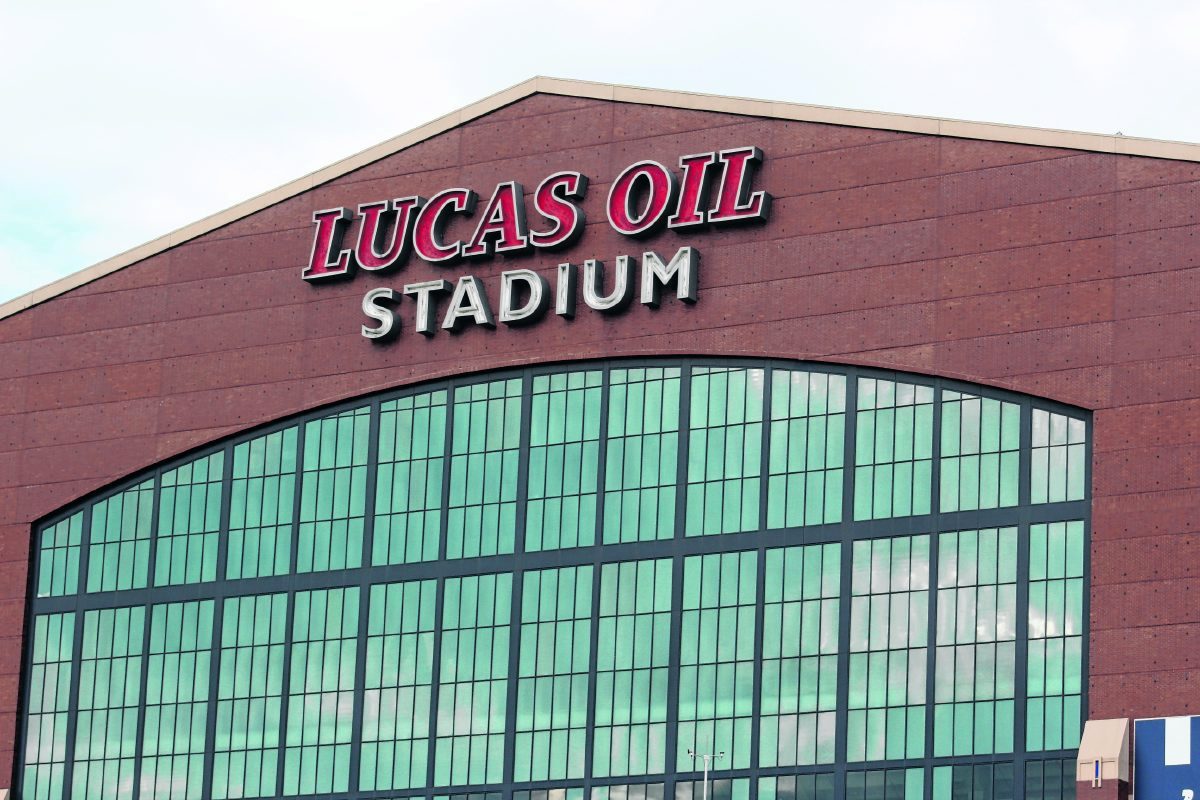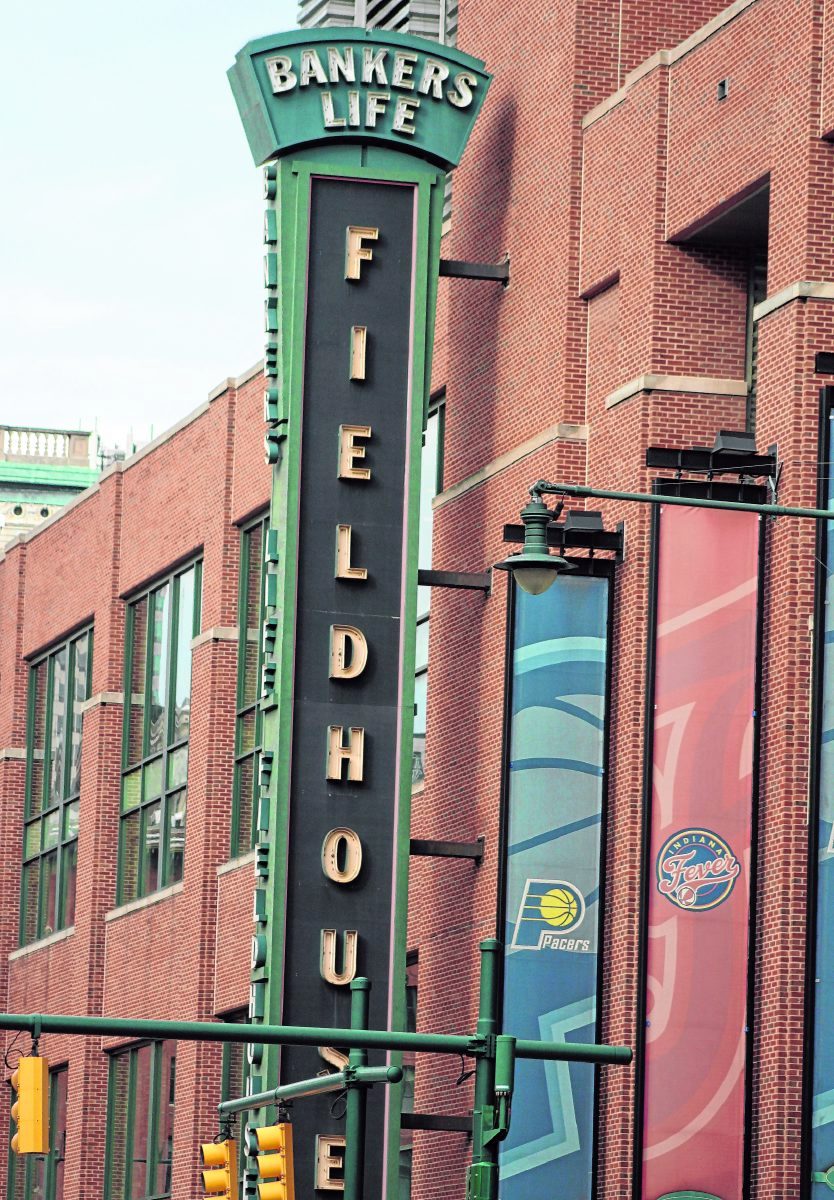
The roots of the NCAA men’s basketball tournament being played in Indiana, from the First Four to the Final Four, date to 1979.
Reasons behind the why of it grew from the international COVID-19 pandemic, which has ravaged the planet for the last year, but as the precarious 2021 68-team event begins today with plans to culminate April 5, it is no exaggeration to say the groundwork was laid 42 years ago.
The circumstances forcing what expanded an expected weekend of Final Four hoops into three weeks of nearly nonstop college basketball in and around Indianapolis are tragic since approximately 121 million people have been afflicted with the coronavirus and some 2.7 million have died.

Yet one of the nation’s showcase sporting events will go on after being canceled a year ago.
The rest of the nation may wonder, “Why Indianapolis? Why not New York or New Orleans, Arlington, Texas or Atlanta?” The answer is Indiana Sports Corp.
Founded in 1979 with the then-radical notion sports could be big business for a community and Indianapolis could become a destination for the largest sporting events n the world, Indiana Sports Corp already was a regular working partner with the supervisors of collegiate sport.
From a who-are-they-group to a power broker on the sports scene, Indiana Sports Corp has matured into an organization with a track record that carries heft and can communicate with and offer aid to someone who chooses to host a major event in Indianapolis.
The very first event Indiana Sports Corp helped organize was the Midwestern Cities Collegiate Conference cross-country championships. As an illustration of how things have changed, there no longer even is a Midwestern Cities Collegiate Conference.
Indianapolis has gone on to host the 2012 Super Bowl, this will be the ninth Final Four hosted and welcomed three women’s Final Fours.
The demarcation line stepping up in class and scope, however, is perhaps little remembered by the average citizen today — the 1987 Pan American Games. The multi-sport, quadrennial Olympic-style festival was a huge undertaking with 4,300 athletes, and Indianapolis proved it could handle big and international.
The nonprofit tries to make a profit for Indianapolis.
“Indianapolis has been home to 450 national and international events over the last 40 years,” said Brent Kramer, the corp’s director of public relations. “No matter how big or small, it has been preparing us for this.”
It also is no small thing that the address of the Indiana Sports Corp is 115 W. Washington St. in Indianapolis and the address of NCAA headquarters is 700 W. Washington St., a geographic distance of 1.1 miles. The spiritual distance is basically nonexistent.
The NCAA moving from Overland Park, Kansas, to Indianapolis in 1999 also was a big get coup for Indiana.
“They’re in our backyard,” Kramer said. “We have such a close working relationship.”
Final Four coveted
The NCAA men’s basketball tournament, the Final Four in particular, is one of the most popular sporting events in the United States, ranking near the top interest alongside the Super Bowl and World Series.
March Madness’ theme has spread beyond the boundaries of the sport. Fans, and even casual watchers, know what it is and fill out prediction brackets for prizes even, if those who know nothing about the sport. Men and women.
A year ago, the NCAA, which helps fund the athletic departments of member schools and coffers of conferences, lost $600 million by not conducting the 2020 tournament.
The COVID-19 pandemic shut down sports around the country in mid-March, just as leagues were completing their tournaments and vying for NCAA spots. People were ordered to stay home, not frequent crowds, wear masks and social distance. Like most of the country in general, sports, and the NCAA tournament, were paralyzed in place.
The Final Four that didn’t happen was scheduled for Atlanta. The 2021 Final Four was already scheduled for Indianapolis.
Last summer, Major League Baseball completed just a 60-game season. The NBA and NHL, which halted play in March, resumed play in summer and completed their seasons months late.
Adopting tight protocols on virus testing and how teams should respond if coaches, players or staff became ill or simply faced a positive result, the new college basketball season began Nov. 25.
Still, time after time, an individual connected to a team, sometimes a coach, sometimes a player or an opponent, forced postponement or cancellation of a game. This resulted in widely disparate numbers of games played, even within the same league.
In this field, No. 1-ranked Gonzaga is 24-0 and Iona is 12-5. Baylor is 22-2, Hartford 15-8. Due to virus issues, Iona had a 51-day layoff during the season. Villanova, 16-6, had more than one interruption, and coach Jay Wright tested positive. Colgate went 14-1, UConn 15-7.
The virus still hovered and infected and could have junked the whole season. Ultimately, it did not, and it fell to the NCAA to manufacture a tournament plan that minimized travel and exposure.
Indiana is exuding optimism that everything will work out.
Gov. Eric Holcomb is enthused Indiana percolated to the top as the choice location for the NCAA. Somewhat overshadowed is that the NCAA also is holding the Division II Final Four in Evansville later this month and was going to hold the Division III Final Four in Fort Wayne. However, the organization called off all Division III sports championships because of low participation numbers among schools.
“Indiana is a basketball state, and we’re beyond excited to safely host (NCAAs),” Holcomb said.
The NCAA pondered how to conduct a tournament with the coronavirus scene uneven around the country. The resolution was to bring all 68 teams to one city, hold all 67 games in one area, ratchet up testing, social distancing and hope everyone survives.
Calling the NCAA tournament “an $800 million property,” Dan Gavitt, senior president of basketball for the organization, said he studied how other sports finished their seasons and championships in 2020, including the pro basketball and hockey bubble approach.
The NCAA will have a modified bubble rather than a super restrictive one used by the NBA and WNBA at two Florida sites and as the NHL used in Canada.
“Over a three-week time period, we feel this can be successful,” Gavitt said.
Indianapolis popular hoops home
Four teams were waylaid in early March in their pursuit of conference tournament championships because of positive virus tests: Duke, Virginia, North Carolina A and T and Kansas. Virginia, the sort-of reigning champion because of its 2019 triumph, and Kansas were invited to the Big Dance anyway.
The condensed nature of downtown has helped make Indianapolis a popular site for the Final Four with a fan able to park his car for four days, to stay in his hotel, eat, attend games, visit fan sites and never move it.
This year, the same principle is being applied to the teams. The Final Four itself will be played at Lucas Oil Stadium, home of the Indianapolis Colts. Other Indianapolis games are scheduled for Hinkle Fieldhouse, Butler’s home court, and Bankers Life Fieldhouse, home of the Indiana Pacers and Indiana Fever.
When Indianapolis was announced as the primary game site in January, athletic directors of the local colleges embraced the notion as being good for the area.
“Bringing all of March Madness to our great state and our great city in 2021 is yet another example of true partners coming together to showcase our community as the best place to host sporting events,” said Butler Athletic Director Barry Collier.
Some games will be played on the outskirts of the city, in Bloomington, at Indiana University’s Assembly Hall and at Purdue’s Mackey Arena. There will be six courts used for competition daily because the areas will be thoroughly cleaned and sanitized between games. Sites outside of Indianapolis will only be used for early round games. Practices will be at the Indiana Convention Center within walking distance of hotels.
“We need to create an environment that eliminates or mitigates contact,” Gavitt said in a media briefing a few weeks ago. “It’s only as good as everyone disciplines within it. We’re going to test every day. If the weakest link becomes that chain, you’ve got a problem.”
If a team faces virus issues after the tournament begins, it essentially will knock itself out of the bracket, Gavitt said, by forfeiting.
In an unprecedented year when Indiana hosts the entire tournament, almost no Indiana teams were selected. Only Purdue is in the field. IU, Butler, Indiana State, Notre Dame and Ball State were not in contention.
Teams visiting from around the country will stay in downtown hotels. Players are to be sequestered in their rooms for their first 24 hours in town. The price to play will turn players into veritable pin cushions. They must produce seven negative virus tests from the time they begin travel to the tipoff.
Ordinarily, the Final Four is one of the toughest tickets in sports to obtain, and the games sell out within days in buildings as large 70,000-seat Lucas Oil. But there are fan and media attendance limits at each venue.
There are special media access plans through Zoom press conferences for games, and media coordinator David Worlock joked there is quarantine for sports writers as there was with pro basketball.
“You’ll still be able to get a shrimp cocktail or the 2 a.m. milkshake,” he said in apparent reference to St. Elmo Steak House for the former and Steak ‘n Shake for the latter.
As has everyone from President Joe Biden on down, Worlock said virus caution should continue to be exercised. With regard to the NCAA, it is important for college basketball fans, he said, “This goes off.”
Gonzaga, with perhaps its best team, is the favorite as play begins. Baylor, ranked No. 2 most of the year, is the next favorite. Fan favorite Loyola of Chicago, in the Final Four in 2018, is back in the field with a 24-4 record, for the first time since, when senior-citizen team chaplain Sister Jean became a darling of the tournament for her endearing manner.
Just Tuesday, Sister Jean Dolores Schmidt, who is now 101 years old, saying she is fully vaccinated, proclaimed her desire to attend the Ramblers’ opening game Friday against Georgia Tech whether school officials discourage it or not.
Sister Jean relayed a conversation with school officials to Loyola coach Porter Moser: “I looked them in the eye and said, ‘I’m more healthy than you. I have my vaccination. I’ve been tested 30 times.'”
Sister Jean takes her direction from God, which should make bracket aficionados listen up since she predicted Loyola will reach the Elite Eight.
Such a big hit with the masses last time around, a bobblehead figure of Sister Jean was issued then by a company that manufactures them. Now back in the limelight, orders are being taken for a new Sister Jean bobblehead.
Indiana seizes the spotlight
This circumstance and arrangement with every game in one small area instead of spread across the country is likely a once-in-a-lifetime situation — at least people hope so.
However, Indiana Sports Corp does hope to reap some benefit by showing off the city and area, its know-how and readiness. Kramer said the organization has a massive list of volunteers to call on with big-event sports experience.
“We have volunteers that have been around for all 40 years,” she said.
The NCAA was well-positioned by its own location and because of Indiana Sports Corp’s track record to lean on this group for assistance.
“We’re thankful the NCAA is trusting us with this,” Kramer said. “This will be the first time an NCAA is planned in less than two months. Where we were as a country, I don’t think it caught us by surprise. We love having the opportunity. We’ll never shy away (of taking on the challenge).”
Being ready, Kramer said, is Indiana Sports Corp’s “mantra for this moment.”
